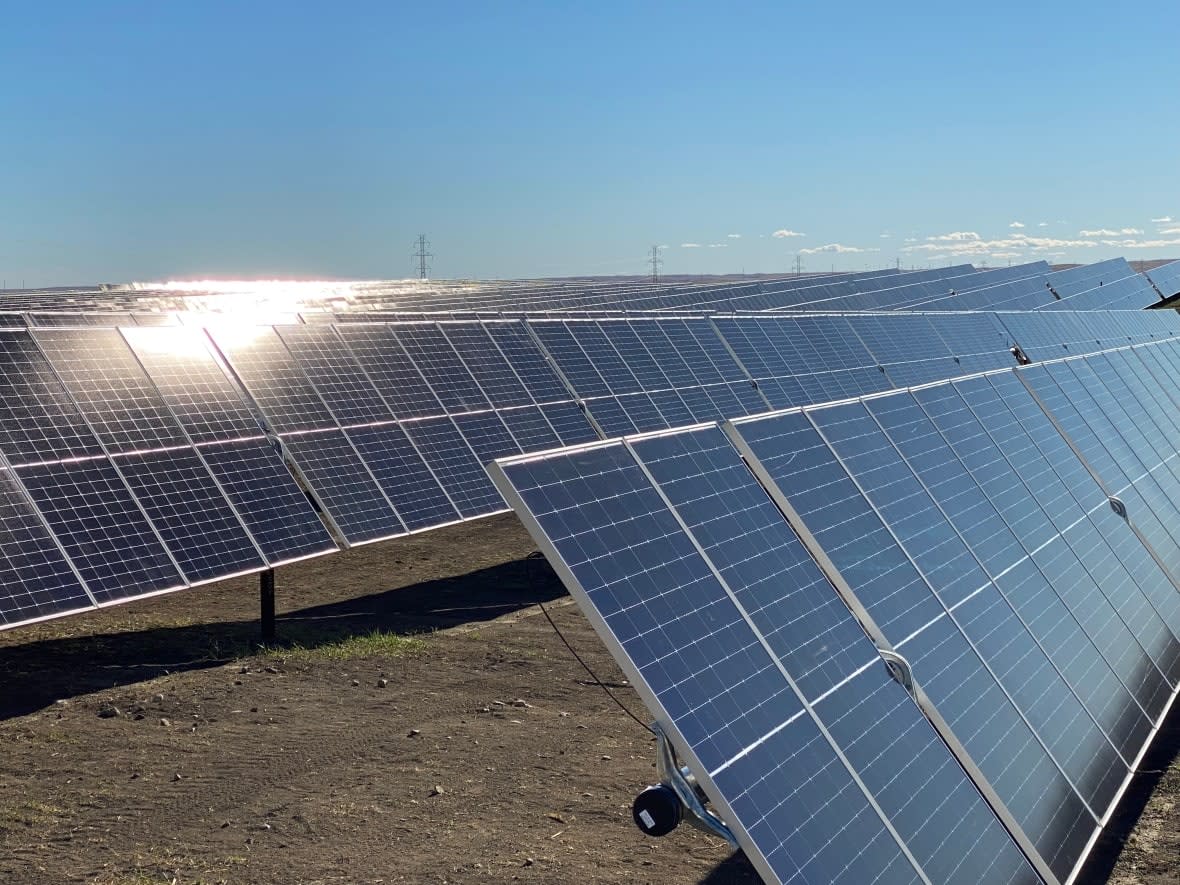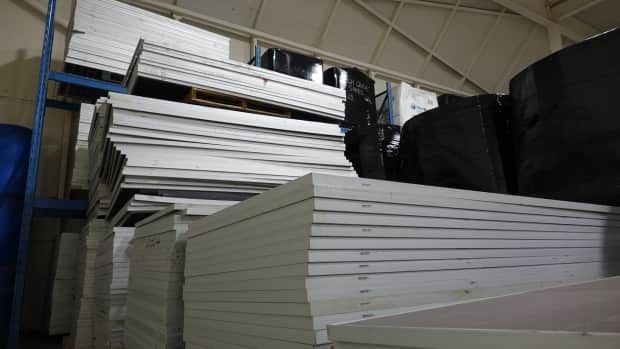Pilot program aims to refurbish solar panels before they end up in Alberta landfills

Thousands of solar panels are set to reach their two-decade lifespan in the coming years, but one Alberta group is aiming to keep some of those panels out of the landfill.
Canada could pile up 800,000 tonnes of expired solar panels by 2050, according to the International Renewable Energy Agency.
The Alberta Recycling Management Authority (ARMA) is preparing for the wave of expired panels and has launched a pilot project to try to keep them in use. ARMA has already recovered close to 700 over the past two years with hopes of testing and refurbishing them.
"I think what we're experiencing right now is a calm before the storm," said Brad Shutlz, ARMA CEO. "So we're going to start seeing these coming in by the hundreds of thousands. So it's nice to have a solution before it becomes a problem.
The ARMA has been working on the pilot project for the past two years to solve the problem. Solar panels aren't included in Alberta's electronics recycling program, and the agency wants to change that.
"What we thought we would do is try to get an understanding of the volume that's out there and what are the challenges, how do we actually recycle this material," Shutlz said.
"So working with our processors, we have come up with a method of funding them to go to all these collection sites, bring it back to their facilities and recycle it and just understanding the challenges, and the cost."
In a west Edmonton warehouse, Darren Dunfield demonstrates how he tests out solar panels to assess how safe they are, and monitors how much production might be left.

Dunfield, a research lead at NAIT's Centre For Grid Innovation, is hoping to eventually automate the process.
"We need processes that can rapidly test, discard and move to refurbishment," Dunfield said. "So expanding the speed that we do the testing, expanding the refurbishment ability of how many more we can salvage. Ultimately for me it's about removing them from the waste stream."
The refurbished solar panels may not be able to generate electricity for the province's power grid due to certification and insurance issues, but the ARMA considers them a good fit for farmers who are looking to cut back on low-end energy use.

In the meantime, Dunfield is training people like Mark Schell, the owner of Hi-Tech Recyclers to test hundreds of solar panels that have already been recovered.
"It's always fun and exciting to be on the cutting edge of something. It's nice to be the first guy. You'll learn a lot and you don't have to take a whole bunch of time like the others will," Schell said.
While the pilot is expected to wrap up this month, the province is exploring opportunities to continue it, said Miguel Racin, press secretary for Alberta's minister of environment and protected areas.

 Yahoo Movies
Yahoo Movies 
